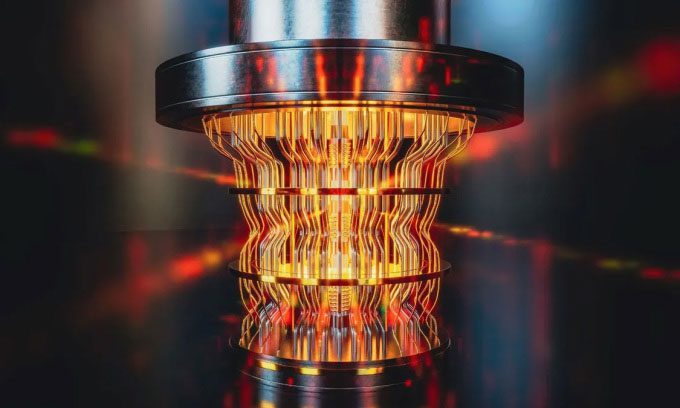Experts Discover New Material That Could Replace Helium, Enabling Ultra-Low Temperatures for High-Tech Applications.
A team of specialists led by researchers from the Chinese Academy of Sciences in Beijing has discovered a new material with significant potential applications in quantum computing, reported Interesting Engineering on January 24.

Simulation of a quantum computer. (Photo: bpawesome/iStock).
This discovery could represent a major breakthrough for China, a nation that has relied on imported helium from various countries, including the United States. Liquid helium—through cryogenic technology—has been used as a coolant for nearly a century in research and practical applications requiring extremely low temperatures, ranging from medical devices to deep space exploration.
However, helium is a scarce resource, and the demand for this material in high-tech industries is on the rise. This is especially true for helium-3, a rare isotope that serves as an effective coolant under extreme conditions.
Following experimental processes, experts discovered a quantum magnetic material made of cobalt known as “supersolid.” This material exhibits both solid and liquid characteristics, making it a potential alternative coolant.
The supersolid material successfully cooled down to below 1 Kelvin, demonstrating the ability to achieve ultra-low temperatures. In physics, ultra-low temperatures range from approximately 0 to 4.2 Kelvin, a critical range for advanced technologies such as quantum computers. Theoretically, the lowest temperature achievable in physics is absolute zero, or 0 Kelvin (equivalent to -273 degrees Celsius).
The research team has made strides in recreating and applying experiments in specific environments; however, the new material still faces limitations. According to Professor Sun Peijie from the Beijing National Laboratory for Condensed Matter Physics, the new material needs to be utilized in environments with temperatures around 4 Kelvin. Additionally, experts must overcome several technical challenges before widespread application can occur. Professor Sun also noted that the discovery of the supersolid could inspire scientists to explore other materials, thereby advancing the field of physics.


















































